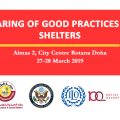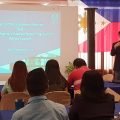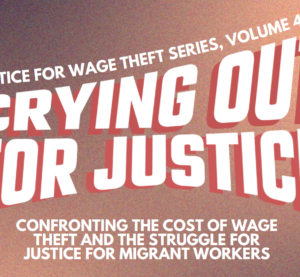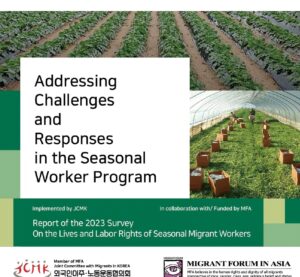MFA Participates in the 107th Session of the International Labour Conference
— July 19, 2018The International Labour Organization (ILO) commenced its 107th Session of the International Labour Conference (ILC) on 28 May 2018. The ILC is the highest decision making body of the ILO which annually brings together tripartite delegations (workers group, employers group and governments) and other observers including the civil society to discuss different thematic areas related to the world of work.
This year’s ILC looked into the following technical items: general discussion on the effective ILO development cooperation in support of the Sustainable Development Goals (SDGs); violence and harassment against women and men in the world of work; a recurrent discussion on the strategic objective of social dialogue and tripartism; abrogation of specific ILO conventions and the proposed amendments to the Maritime Labour Convention.
The three-member delegation of MFA followed the debates on the committee on harassment and violence in the world of work. MFA representatives were present as observers during the plenary committee sessions as well as during the workers committee meetings. MFA was able to work with the Worker’s Secretariat to ensure that violence against women domestic workers and migrant workers were also captured during the discussions and committee meetings.
In 2015, the Governing Body placed an item on “Violence against women and men in the world of work” on the agenda of the 107th session of the ILC.For this specific technical agenda, the Conference may adopt an international labour standard over two sessions or over two years. In 2016, the Governing body expanded the title of the item and added “harassment” making “making it “violence and harassment”.
Violence and harassment in the world of work constitutes a serious human and labour rights violation. It impinges on the ability to exercise other fundamental labour rights and is incompatible with decent work. Violence in the world of work is a threat to the dignity, security, health and well-being of everyone. It affects all occupations and sectors of economic activity around the world, including the private and public sectors and the formal and informal economies. It has an impact not only on workers and employers, but also on their families, communities, economies and society as a whole.
Although there have been a number of ILO standards that address the topic in a limited manner and some elements of regulatory frameworks; these standards does not define what exactly is “violence and harassment” or what the scope of “world of work” really are. The significance of this topic is that, other than it will give clear definitions and scope to the aforementioned terms, it will also provide guidance on how to address issues surrounding this.
Two reports were prepared as the basis for the first year discussions. The first report consisted of a questionnaire which governments and social partners were requested to fill in. The answers were summarized and included in the second report. Based from the results of the questionnaire, a proposed conclusion was created. The proposed conclusions contained the following:
a) Form of the Instruments
b) Definitions
c) Proposed Conclusions with a view to a Convention
d) Proposed Conclusions with a view to a Recommendation
In this particular technical agenda, the Workers group emphasized the need for an inclusive instrument that takes an integrated approach to addressing violence and harassment in the world of work as well as an instrument that protects all workers regardless of their sector, whether in the formal or informal economy. The Workers group also highlighted the need to see a strong focus in the instruments on gender dimension of violence and harassment.
Moreover, the Workers group wanted to ensure that all workers are covered, regardless of employment status. With regard to categorizing specific groups of workers, as much as possible, they wanted to move away from creating groups and specific definitions as this would mean that certain categories or group of workers might get excluded.
In the proposed conclusions, violence and harassment is defined as “a continuum of unacceptable behaviours and practices, or threats thereof, whether a single occurrence or repeated, having the aim or effect of causing physical, psychological, sexual or economic harm, and includes gender-based violence.” The concept of a continuum recognizes that violence and harassment are often intertwined and difficult to differentiate.
During the discussions in the ILC, majority of the Workers group are supporting a convention supplemented by a recommendation. On the other hand, the Employers group are noted that if an international instrument is decided to be developed, a recommendation is preferable. A Convention tends to be very limited in scope and risks excluding various inappropriate behaviors in its response to violence at work. A standard which covers too wide a range also risks becoming legally unclear and, by consequence, unratifiable. A recommendation has the advantage of being flexible and could provide guidance on additional aspects of “unacceptable” behavior at work (such as bullying and harassment). With regard to the governments, majority also support a convention supplemented by a recommendation as two separate instruments or a single instrument with binding and non-binding provisions.
A Convention would be essential to signal without ambiguity that violence and harassment is unacceptable and the antithesis of decent work, and that it therefore demands serious and urgent attention. A Recommendation would complement the Convention by providing more detailed and practical guidance on how to translate the principles embedded in the Convention into action.
The Workers group emphasized that on private spaces, it should include homeworkers, domestic workers and should be kept as broad as possible. This is because once groups are defined and/or limited, there might be other categories that might be excluded as mentioned earlier.
To know more about the program please click the link below:
https://www.ilo.org/ilc/ILCSessions/107/lang–en/index.htm
To see the instruments and resolutions adopted during the 107th ILC please click the link below:
https://www.ilo.org/ilc/ILCSessions/107/reports/texts-adopted/lang–en/index.htm







